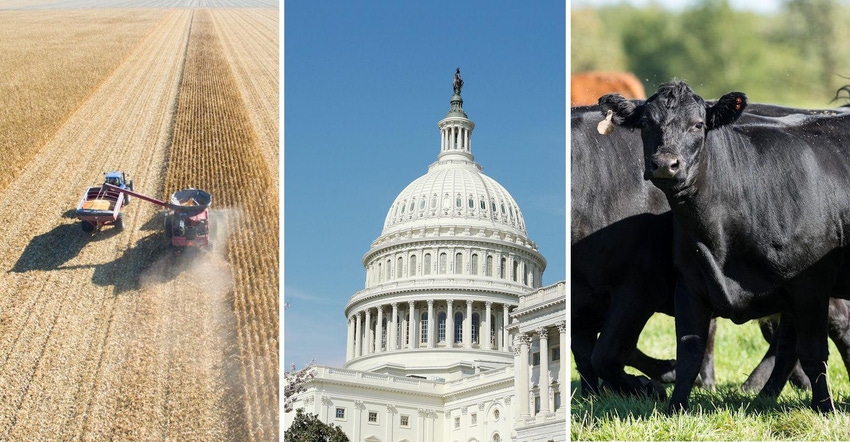7 ag stories you might have missed this week - April 30, 2021
RFS case heard in Supreme Court, Biden unveils American Families Plan and China continues to battle African swine fever.

Need a quick catch-up on the news of the week? Here are seven agricultural stories you might have missed.
1. The Supreme Court on Tuesday heard the case of Hollyfrontier Cheyenne Refining v. Renewable Fuels Association. Read the transcript of proceedings and hear the oral argument at the Supreme Court website. The justices questioned contentions by two refining companies that Congress intended to create a long-term safety valve for refiners otherwise required to blend plant-based fuels into their products. – Bloomberg
2. President Biden's American Families Plan calls for changing the way the tax code handles capital gains and eliminates the stepped-up basis. However, the plan offers protections for family-owned businesses and farms who pass on the entity to heirs. The White House says the plan is a once-in-a-generation investment in education, health care and child care. – Farm Futures
3. Agriculture Secretary Tom Vilsack says the Biden administration is not out to limit your beef intake. “There is no effort designed to limit people’s intake of beef coming out of President Biden’s White House or USDA,” Vilsack said. The falsehood comes from conservative lawmakers and pundits. – The Hill
4. The Ever Given remains impounded almost a month after it was rescued from the Suez Canal where it snarled traffic for six days. Most of the crew members have remained on board as the ship floats in the Great Bitter Lake, an artificial body of water along the canal. The captain can't leave the ship because he's the ship's legal guardian. – Business Insider
5. Chinese officials plan to split the country into five regions beginning in May, and live hogs will not be allowed to cross the boundaries as the nation aims to control the spread of African swine fever. The move is expected to push down pork prices in the main pork producing areas of the north and raise prices in demand centers in the south. – National Hog Farmer
6. R-CALF says cattlemen have the right to use traditional, low-cost methods for animal identification and traceability and the group is fighting USDA for that right. USDA's Animal Plant Health Inspection Service wants cattlemen to soon use radio frequency identification ear tags to track animals. R-CALF has taken the issue to court and is represented by legal nonprofit New Civil Liberties Alliance in U.S. District Court for Wyoming. – Food Safety News
7. USDA's Animal and Plant Health Inspection Service is extending deregulation to J.R. Simplot Company's Snowden Z6 potato, which was developed using genetic engineering. The potato variety is engineered for late blight protection and reduced blackspot bruising among others. APHIS previously deregulated these traits in another Simplot potato variety. – Fresh Fruit Portal
And your bonus.
A killer robot, called Dick, targets individual weeds in crops and is destroying broadleaf weeds identified using pattern recognition. A scout robot, called Tom, scanned the field in detail and passed the data to an AI engine called Wilma to plot the targets before Dick entered the field. The robots are the work of the Small Robot Company. – The Guardian
About the Author(s)
You May Also Like


.png?width=300&auto=webp&quality=80&disable=upscale)
